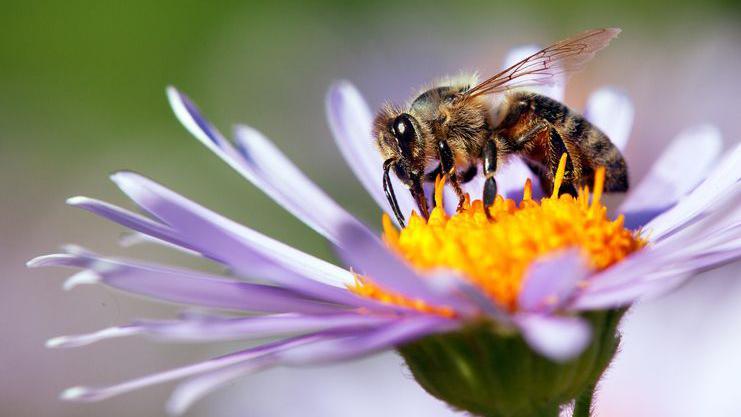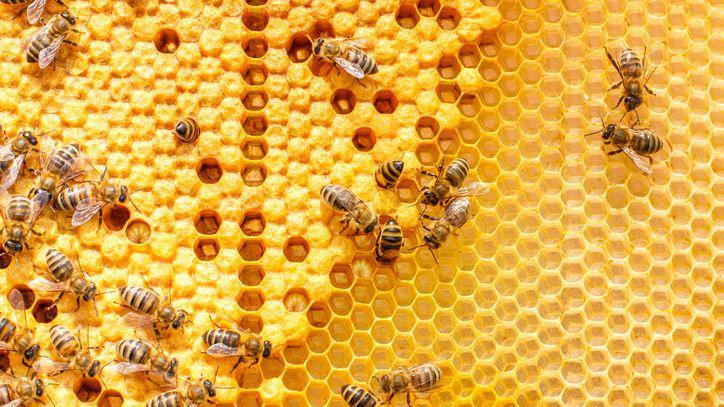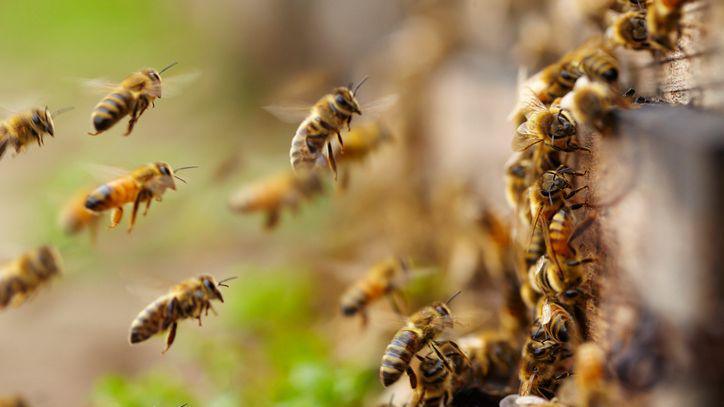Help for honeybees as scientists create 'superfood'

- Published
Honeybees are extremely important creatures that help provide a lot of the food we eat.
They help to grow fruit and vegetables by flying around and pollinating plants.
However, their population is under threat from things such as habitat loss, pesticide use and climate change.
Now, scientists have developed what's being described as a "superfood" for honeybees that could help protect the insects.
More animal news
- Published3 days ago
- Published4 days ago
- Published15 August
What have experts created for honeybees?

Honeybees are an important part of food production and contribute to the polination of 70% of the main crops grown around the world, including many fruit and vegetables.
However, their population is at risk due to factors such as habitat loss and climate change.
But things could now be about to change.
A group of scientists led by experts from Oxford University have developed what's being described as a honeybee "superfood" that could protect the animals against these threats.
Honeybees usually feed on pollen and nectar from flowers which contain lipids and sterols, but struggle when these nutrients are in short supply.
Now, using a process called gene editing, the researchers have managed to make a yeast that can produce the six sterols that bees need.
Trials showed that, in colonies which ate the supplement, fifteen times more baby bees grew to adulthood.

Professor Geraldine Wright from Oxford University who wrote the study explained the importance of this "superfood".
"When the bees have a complete nutrition they should be healthier and less susceptible to disease."
Prof Wright said the food would be particularly useful over summers like this one, when flowering plants appear to have stopped producing early.
"It's really important in years when the summer came early and bees will not have sufficient pollen and nectar to make it through the winter."
The team say that larger-scale trials are needed to test their "superfood", but the supplement could be available to beekeepers and farmers within two years.
Why are honeybees important?
Watch: How to make a bee paradise
Let's take a closer look at what makes bees such bee-rilliant creatures.
* Some bees might visit as many as 2,000 flowers every single day.
* Honeybees can remember landmarks so they know where their hive is.
* Bees flap their wings about 200 times every single second when they're flying.
* Honeybees fly about 500 miles in their lives - that's like flying from Edinburgh to Paris!
* There are about 20,000 different species of bee in the world.
* A worker bumble bee can carry pollen that weighs half as much as them!
